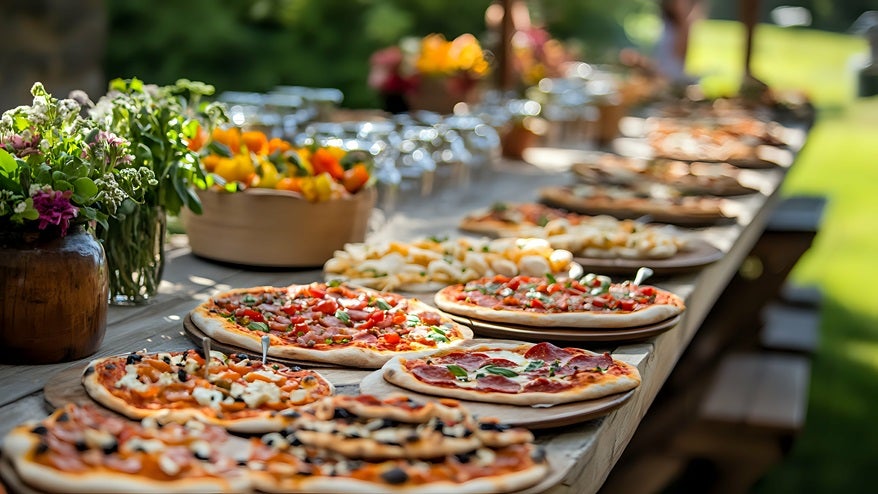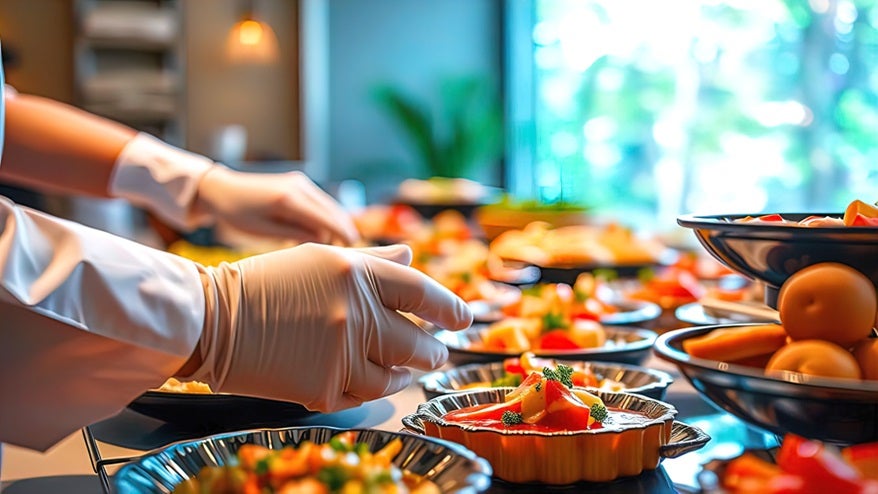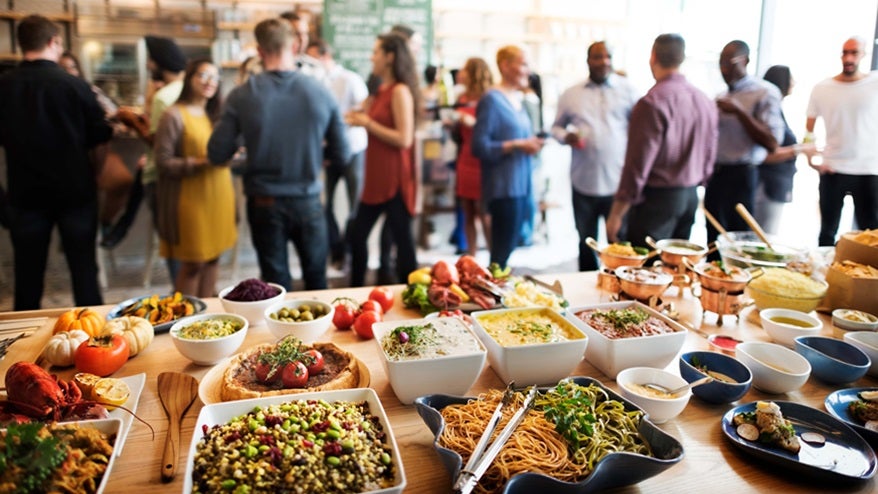
A guide to working with a production caterer
A well-fed crew goes some way to ensuring a smooth-running set…
Choosing and working with a caterer on your film or TV production may seem a straightforward process – just pick the cheapest of several pitches and give them an outline of your criteria, maybe?
In reality, there are many considerations to be taken into account, that could really make a difference to how satisfied you are with your choice and how well your caterer meets the needs of everyone on set.
Here, Brian Bhoola of Pegasus Film & TV Catering Ltd provides expert insight into how to get the best from your caterer – thus ensuring a happy and well-fed cast and crew…

Key essentials
Days on set are long and highly demanding with the crew working to tight deadlines. A good caterer is essential to keep the cast and crew energised and firmly on schedule.
The key essentials to look for in your caterer’s provision include:
• Transportation of food and equipment
• On-site kitchen setup and breakdown
• Seamless service in remote and challenging locations
Planning and updating
Proper planning is the foundation of a smooth-running catering operation. Before service can begin, you must give your caterer certain key details to ensure efficiency and quality:
• Total shoot days – Understanding the length of the production helps your caterer accurately plan supplies, staffing, and logistics
• Headcount ranges – The catering company needs to know the minimum, maximum, and typical daily crew numbers to prepare for fluctuations while maintaining efficiency
• Dietary requirements – Productions must provide details on allergies, vegetarian, vegan, and other special dietary needs early on. This allows your caterer to create inclusive menus and source appropriate ingredients
Regular updates from Production are vital to account for changes. The more accurate the information, the tighter the plans can be, ensuring a smooth service every day.

Accurate head-counts
Providing realistic and timely head-counts is critical for smooth catering operations. If your caterer plans for 90 people but arrives to find 150–170, it puts significant strain on service, risking food shortages and delays.
To avoid issues, Production must provide updated numbers at least one week in advance so the following can be achieved:
- Menus adjusted accordingly
- Sufficient supplies ordered
- The right number of staff scheduled
Even small fluctuations impact food quality and service speed, making clear and ongoing communication essential. If accurate numbers aren’t provided, the entire crew’s experience is affected, potentially disrupting the production schedule.

How to choose a caterer
Choosing an experienced film catering provider is crucial. While opting for a cheaper, non-specialised caterer may seem cost-effective, it often leads to frustration, logistical failures, and service delays. Some caterers are unfamiliar with:
• The timing constraints of a production
• The mobility required for on-location service
• The nutritional needs of hardworking cast and crew
Adaptability and flexibility
A good caterer will be flexible and adaptable, so check in advance that they can cover last-minute, logistical changes, including:
• Schedule adjustments
• Location shifts
• Fluctuating crew numbers
Budgeting
Tight budgets are a reality in film and TV production. It is perhaps a little-known fact that when the production team receives a quote of £21.50 per head, only 35% (£7.52) is allocated for food—the remaining 65% covers staff wages, vehicle costs, and other operational expenses.
As an example, if salmon costs £4.50 per portion, that leaves only £3.02 to cover:
• The rest of lunch (sides, desserts, beverages)
• Breakfast
• Morning and afternoon breaks
• Two running tea tables throughout the day
This demonstrates why premium ingredients like steak or smoked salmon may not always be feasible without increasing the budget or adjusting the menu elsewhere.

Additional charges for vehicles and staff
On some occasions – mainly in film productions – additional charges for catering vehicles and staff are applied separately from the per-head catering budget. This ring-fences the food budget, allowing for more money to be allocated directly to the quality and variety of meals provided.
However, when these additional charges are not applied, it can make the caterer’s job harder. Without these separate allowances, the per-head budget must stretch to cover not just food, but also operational costs, putting pressure on both food quality and service efficiency.
Additionally, budget constraints directly impact staff wages. Location catering is a physically demanding job, often requiring 12-hour shifts starting as early as 4am, with staff handling everything from cooking and serving to equipment setup and breakdown.
*Pegasus provides location catering services for small and large productions across multiple sites, offering first and second unit support, as well as craft and coffee-vehicle service. Click here for full details of Pegasus’ offering.
With many thanks to Brian Bhoola for his help in compiling this guide.
*NB: Any prices quoted were correct examples at the time of going to press. All images via AdobeStock.
*Sponsored content.
Share this Article










